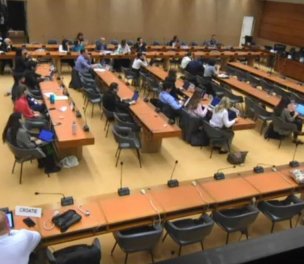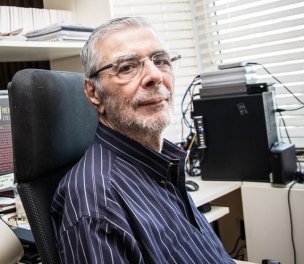Photo: AA/File
Click to read the article in Turkish (1) (2)
Mehmet Eymür, a retired senior official of the National Intelligence Organization (MİT), has admitted the agency's practices of torture and extrajudicial killings.
In a two-part interview with T24 news portal published on November 4 and 5, Eymür touched on several controversial incidents spanning 50 years.
"In my view, the state can do anything. It's legitimate," he said when asked about the assassinations of 19 writers and businesspeople, some of which were accused of being involved in drug trafficking, in the 1990s.
However, he said, those killings were perpetrated not for the interests of the state but for personal interests.
Eymür said he didn't approve of the extrajudicial killings in the 1990s, for some of which Turkey has been found guilty by the European Court of Human Rights (ECtHR).
In the case concerning those killings, an appeals court in May overturned the acquittal of the defendants, which included former Interior Minister Mehmet Ağar and former intelligence officer Korkut Eken.
CLICK - Assassinations in 1990s come under spotlight again after Peker's claims
About a late mafia boss's allegations of torture against him, Eymür said, "If you are smart, you find formulas. Torture is not necessary. What is important is to make them talk."
As the head of the MİT Smuggling Department, Eymür led 1984 detentions of several mafia bosses in what is known as the "Godfathers Operation."
Dündar Kılıç, one of the people detained during the operations, had accused Eymür of torture.
Eymür also confirmed the practices of torture in the infamous Ziverbey Mansion in İstanbul's Kadıköy district. Though he said the mansion had been used as a detention center for a short time.
"I had worked in the interrogations there for about a month ... For example, there was a courier. He would complain about his troubles to me. He would make fun of it, saying, 'Don't we have electricity treatment today? My rheumatism is getting worse'," Eymür told T24.
If there is no other way to make people talk, officers may resort to torture, he added. "Because there are very stubborn types. It's very hard to bring something out of them in another way."
When asked whether people would admit things they didn't actually do under torture, Eymür said, "Interrogation is a matter of being able to learn the truth. [It is] is not only torturing."
He further said even more severe methods of torture are currently being implemented in Turkey. There were MİT pesonnel who were tortured and disappeared, he added.
"No one considers torture as something reputable ... However, you get into a big fight. You have to win that fight," he remarked.
Criminal complaint by TİHV
After the publication of the interview, the Human Rights Foundation of Turkey (TİHV/HRFT) said that it will file a criminal complaint over Eymür's statements.
"These confessions have once again made impunity, which is the most fundamental factor that ensures the continuity of ... human rights violations, made visible in the most bare form," it said on Friday.
"Above all, confessions that are made so recklessly and shamelessly show how big is the destruction in human rights values in our country."
About Mehmet EymürRetired intelligence officer. He started working for the National Intelligence Organization (MİT) in the 1960s. Eymür participated in the 1972 hostage standoff also known as the Kızıldere Massacre, where members of the People's Liberation Party-Front of Turkey (THKP-C) kidnapped three technicians from Canada and the UK. All but one members of the THKP-C, as well as the hostages, were killed in the clashes. In 1983, Eymür was appointed as the head of the MİT Smuggling Department. He led the 1984 "Godfathers Operation," where several mafia bosses were detained. In 1987, he released a report where he revealed corrupt practices by security officials, including state-mafia relations. He briefly left the MİT in June 1988, after his report shook the country. He was appointed as the head of the MİT Counterterrorism Department in 1995. He was sent to Washington in 1997. In 1998, he was appointed as a consultant at the state-run Sugar Factory. He filed a case in this appointment and requested his retirement. Having returned to the US, he opened a website named "atin.org" and shared controversial information about state affairs. |
(DŞ/HA/VK)








